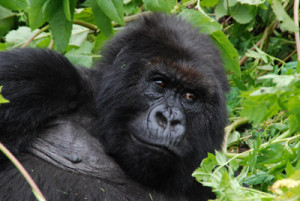Baking sourdough bread requires a starter, and so do mammalian guts, which are first colonized by microbial communities from the mother and then acquire more microbes over time. These gut microbial communities are important for maintaining health and combating disease, and it’s why the Human Microbiome Project launched by the National Institutes of Health in 2008 is studying the microbial communities that populate the human body by sequencing them and assembling a reference catalog, a project that involves researchers at the U.S. Department of Energy (DOE) Joint Genome Institute (JGI).
While the HMP was getting off the ground, DOE JGI collaborator Howard Ochman of the University of Arizona was focusing on a separate but related question: that of determining if gut microbiomes are more heavily influenced by the host or by environmental factors such as diet. In the study published online November 16 in PLoS Biology, Ochman and his colleagues, including former DOE JGI scientist Phil Hugenholtz, now director of the Australian Center for Ecogenomics at the University of Queensland, Australia, studied the gut microbial communities in several primates and compared them to the gut microbiomes of two humans. The results showed that the host, rather than environmental factors such as diet or geography, has the biggest influence over the makeup of these microbial communities.
Using fecal samples collected from their home territories in Africa, Ochman and his colleagues sequenced the microbial communities found in the guts of several primates — eastern and western lowland gorillas, bonobo, and three chimpanzee subspecies — to determine their compositional makeup and compared the results to those from samples collected from humans. They found that the gut microbial communities are species-specific, and have tracked with their hosts over evolutionary timescales. This evolutionary signal appears to be discernable even when gut communities are disturbed by such factors as disease.
“Host phylogeny is the overriding factor determining the microbial composition of the great ape gut microbiota,” Ochman and his colleagues concluded in their study, adding that the finding “contrasts with previous notions that diet is the most important factor governing the gut microbiotae within primates.”
